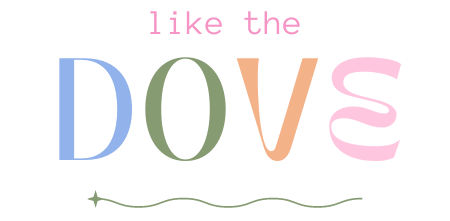sin is not oppressive (the new age just thinks it is)
“If we confess our sins, he is faithful and just and will forgive us our sins and purify us from all unrighteousness.”
What do you know about sin? If you’re a new believer what were your preconceived ideas about sin? How has that changed since walking with the Lord? I want to share what’s been helpful for me in unlearning about what the new age teaches about sin. I feel so encouraged by the parameters of love God has built for us.
What you’ll learn…
exploring the new age lie that sin is oppressive
I share the sin that God first convicted me to see were hurting me + to change
a brief, brief explanation and definition of sin
how to take off your armor of perfectionism and realize you aren't the savior of your own life (Jesus is)
a scripture memory suggestion
how to journal about your sin with the Holy Spirit and 5 journal questions to help you get started in your 'sin study'
The new age culture teaches us that sin is oppressive and created by a hateful God. In my experience since being saved, I’ve felt again and again that living outside of any structure like I did when I was in the new age was only chaotic and wounding. I could do anything I wanted because I was only answering to my own needs, wants, and desires.
When I started to read the Bible and come to it from the perspective that I was reading God’s Word to understand who God is, understand His character and learn how to live in a righteous way - not to read the Bible from a self-centered position of what can I ‘get’ from it - I’ve never felt more loved, more at peace, or more free.
Maybe in the mind of the new age it makes sense that structure equals oppression. But my experience of having a framework to live within has felt empowering and deeply safe and loving.
The new age teaches that God’s commandments oppress us, keep us small, and are controlling. I was curious about the idea of sin when I was newly saved. I didn’t grow up in a family who went to church, read the Bible, or talked about these things. So when I was a baby Christian I had an open mind and heart around sin. I didn’t quite understand ‘why we were bad’ (that’s initially how my mind perceived it) and I also knew that God doesn’t give a structure to live within for fun - there’s a deeply important, valuable reason for every single thing God tells us to do.
When you become a Christian, the Holy Spirit dwells within you and when this happened for me it was clear to me the sins I was participating in. The big, big ones were all the idolatry - goddess worship, divination, earth worship, not trusting in God but trusting in my self, all the things I put above God, etc. But the more regular sin were sins of the tongue (mostly). Telling lies. Not telling the truth to spare someone’s feelings or to avoid confrontation because I still didn’t feel safe. Being judgmental, critical, and self-righteous.
And I had to come to a place of honest reflection. God is telling me this is a sin and that it’s hurtful to my soul to keep it up. We aren’t perfect. We can live up to Jesus and His perfection. That’s why we need Him. And I feel this every time I recognize my own sin. And I’m so grateful for His sacrifice.
A simple definition of sin
Sin means to miss the mark. Sinful actions are choices we make that separate us from God. There is a divine law put in place by God and any actions we take that go against that are considered sins.
That doesn’t feel oppressive to me. That feels like a parent who can see what is and isn’t good for us and is guiding us to make the best choices. That feels incredibly loving.
scripture memory
In fact, this is love for God: to keep his commands. And his commands are not burdensome. 1 John 5:3
Submit yourselves, then, to God. Resist the devil, and he will flee from you. Come near to God and he will come near to you. James 4:7-8
journaling with the holy spirit
5 Questions to study, observe, and reflect on sin with the Holy Spirit
I mentioned in this episode that I like to journal with the Holy Spirit to be guided to study and learn more. Please use the flow that feels best for you. I hope these reflection questions can be a foundation to start your exploration around sin.
what is my relationship with sin?
what’s my definition of sin? how do I describe sin in my own words?
what are the most common sins in my own life?
how does it feel when I sin? and when I sit at God’s feet and ask for forgiveness, what does that feel like? what shifts?
what do I think sin, repentance, and forgiveness means about God’s character and how he loves me?
I hope this was helpful. I’m so grateful you’re here.
I love you,
Eliza
from this episode
Books I mentioned in this episode: Phylicia Masonheimer Every Woman a Theologian and Jen Wilkin Ten Words to Live By
Shop my favorite books and Bibles via my Amazon storefront.




